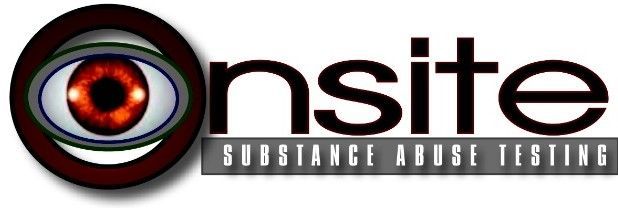New Frontier
New Frontier Counseling Throughout Southeastern Michigan
What Makes Us Different
Onsite Substance Abuse Testing focuses on what’s truly important – appropriate licensing, quality of care, follow-up services and staff credentials.
Accreditation & Licensing
Our treatment center is fully licensed and insured by the State of Michigan, and our programs are run by licensed, well-trained mental health professionals and addiction specialists.
Program Quality & Effectiveness
Look for treatment centers with some statistics on their success rates, preferably from an objective outside agency to ensure proper care.
Follow-up/Aftercare Services
We offer discharge plans and post-care treatment to give you your best chance at success, as well as provide referrals to other various recovery services and support groups.
Do I Need Counseling?

You may need the help of a professionally trained clinician or counselor when the problems and situations in your life have exceeded your ability to cope in a healthy and rational sense. Therapy sessions can benefit even otherwise healthy individuals by helping them work through stress or emotional roadblocks in an organized and safe manner. We now accept insurance, and all of our offices are Medicaid Providers.
When It’s Time To Ask For Help
Suicidal Thoughts or Tendencies
If you or anyone you know is considering or attempting suicide, immediately call emergency services or a mental health hotline. In most cases, individuals who are considering suicide or are self-harming will need professional mental health counseling.
- Address the immediate concern first by mentioning or attempting suicide requires assistance from mental health professionals or safety personnel as soon as possible. Act to secure the individual’s safety and evaluate whether the individual may also be a potential harm to others.
- Schedule a mental health consultation after immediate danger is past. Once the suicidal individual has received an initial evaluation and stabilization by health professionals, set an appointment for psychiatric evaluation or mental health counseling for the near future.
Symptoms of Depression
If you or someone you care about is suffering from symptoms of depression, counseling is often a useful and important source of therapy. First determine if you are actually experiencing symptoms of depression, and then seek counseling after discussing the possibility with your health professional.
- Know the symptoms of depression. Persistent feelings of hopelessness, despair, lack of interest, or anxiety lasting 2 or more weeks are often indicative of feelings that may benefit from counseling. In addition, changes in sleep habits or weight gain or loss may also indicate that stress levels or emotional health may be out of balance.
- Ask your primary care practitioner for screening or a counseling referral. In most cases, physicians and nurses can administer a screening for depressive symptoms and offer guidance about selecting a therapist or seeking counseling for particular issues.
Dramatic Mood Swings
Dramatic mood swings may be another indication that counseling may be useful for mental health. Beyond normal moodiness during puberty, pregnancy, menopause, or other stressful life events, serious mood swings may indicate that assistance from a mental health professional in the form of counseling may be helpful.
- Inform your physician of your symptoms. In some cases, dramatic mood swings may be caused by hormonal imbalances that have a medical cause so it’s important to confirm your condition with your physician before determining how to proceed with a course of treatment.
- Track mood swings to share with the counselor. Take a note of the times, duration, and frequency of extreme mood swings as well as their impact on your behavior. Information such as this can be very helpful to counselors in diagnosing a mood disorder or a possible environmental or medical stimulant for your symptoms.
Substance Abuse
Individuals suffering from addiction require professional help. In many cases, mental health counseling is an essential part of the rehabilitation process. Addiction has strong ties to mental health, and addicts often experience comorbidities, such as depression.
- Get immediate addiction assistance, if necessary. In emergency substance abuse situations, the bodily safety of the individual is of top priority. After health professionals monitor medical stabilization, rehabilitation and therapeutic mental health counseling can be critical to successfully overcoming the addiction.
- Submit to evaluation for other mental health disorders. Request screening for anxiety disorder, depression, schizophrenia, bipolar disorder and other mental health conditions that often accompany alcoholism or drug addiction.
Traumatic Events
Traumatic experiences such as car accidents, child abuse, sexual assault, loss of a loved one or recent loss of a job are among the overwhelming situations many people have difficulty managing without the assistance of a mental health counselor. If you are having difficulty coping with a traumatic experience, whenever it may have occurred, request the assistance of a mental health professional in healing from the event.
- Give yourself time to heal. Grief, confusion, and fear can often pass within a few weeks without the necessity of mental health counseling. If you experience debilitating or persistent emotional difficulties, talk to a health professional about your experience and schedule a session with a therapist.
- Process the trauma with the help of a counselor. Many individuals find a counselor very helpful in understanding the trauma they have experienced and recovering from the event with a more positive outlook on life.
Serious Relationship Issues
Certain interpersonal relationships may benefit from mental health counseling. A variety of problems with any individual in the family or partnership may be amenable to a group or individual counseling.
- Seek counseling for serious concerns about the health of a relationship. Some interpersonal circumstances that may require mental health counseling may include severe parenting challenges, problems with sexual relationships, violence or domestic abuse, post-partum mood disorder or hoarding.
- Seek evaluation for phobias. Individuals suffering from extreme fear of items, activities, people, or even ideas can often benefit from mental health counseling.
General Mental Health Evaluation
In many cases, primary care physicians or nurses can evaluate individuals to determine whether counseling may be beneficial. If a problem is not amenable to therapy, health professionals may offer medical treatment. Often times, mental health conditions are treated with a combination of medical and psychiatric assistance.
- Talk with your health professional. Many doctors and nurses can ask a series of questions to help identify potential mental health concerns. Let them know what you have been feeling or considering and any worrisome symptoms you have experienced and ask for a professional evaluation.
- Follow your gut instinct. If you believe you personally need counseling or that a loved one could benefit from therapy, seek mental health counseling.
Am I Ready to End Counseling?

Counseling will end when you have reached the goals that brought you to counseling in the first place. It does not mean that you are going to be free from all problems and concerns, or that your life will go smoothly from this point on. It may mean that with the assistance of counseling, you have developed ways of making peace with some things and accepting them as they are and you have developed strategies for changing things that are within your power to change.
There are sometimes when you may decide that, although continued counseling may be helpful, it is not the necessity it once was and you can no longer justify the time or financial commitment. Discuss those concerns with your counselor, and you can both look at the possible consequences of your decision so that you can make a more informed choice.
Remember that ending counseling doesn’t eliminate you from the possibility that you may need it again in the future. Knowing that counseling will continue to be available will be a comfort to you now that you have an additional resource to turn to when situations arise that are difficult for you to handle alone.
Making the First Step
Providing Easier Access to the Best Path
Allow our professional and accredited counselors help you find the balance that you’ve been missing at Onsite Substance Abuse Testing today. Give us a call to learn more.

